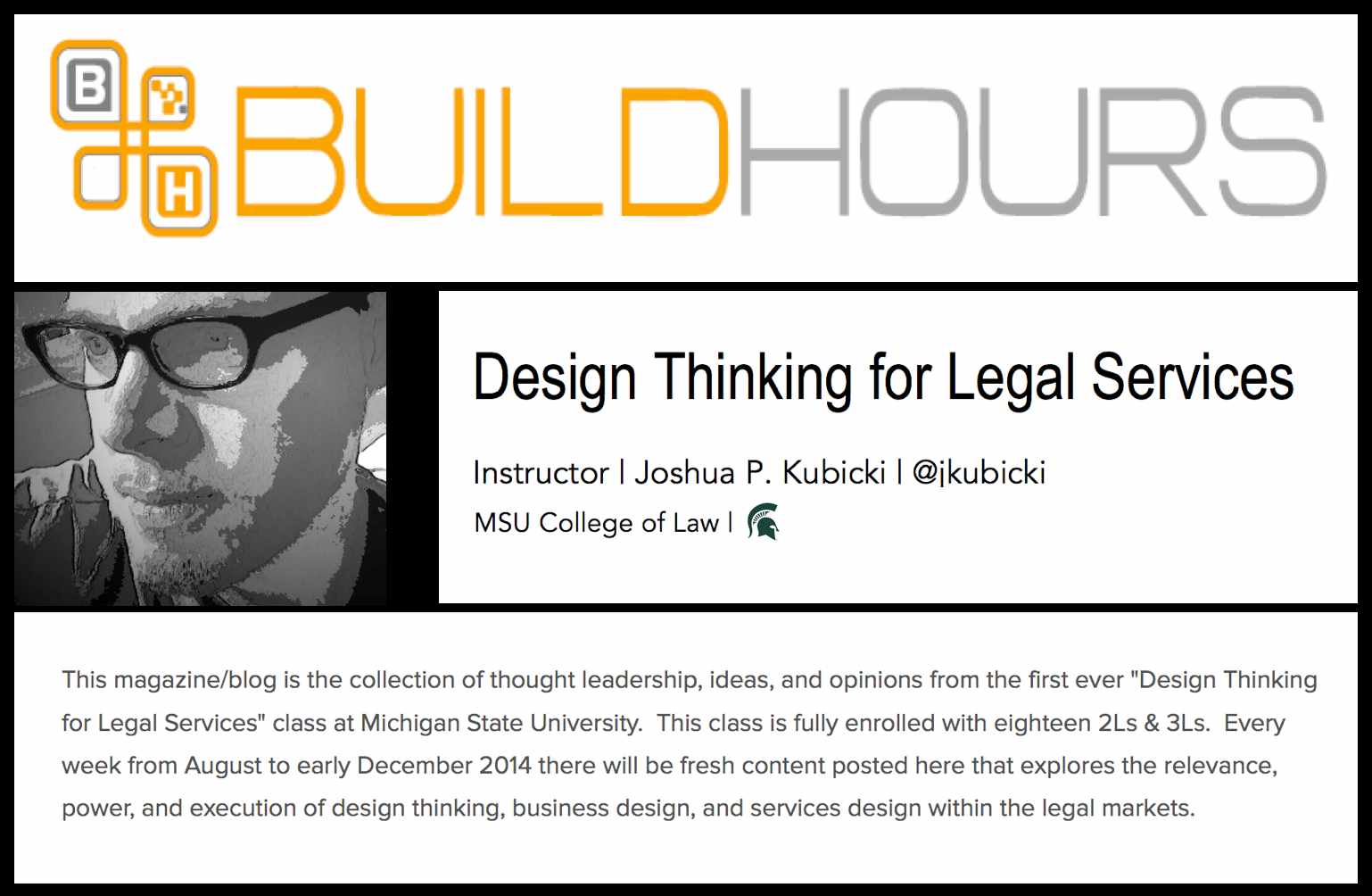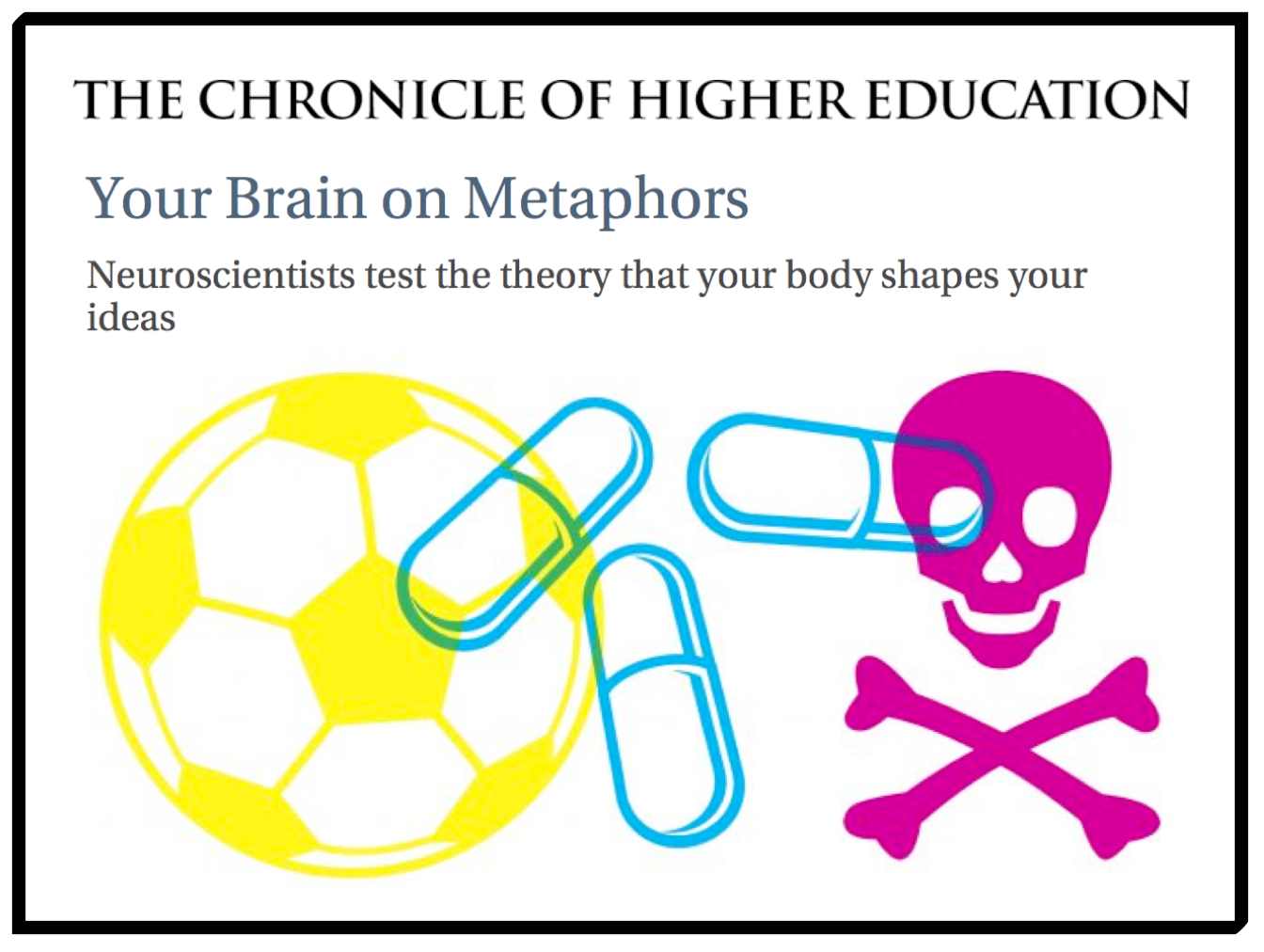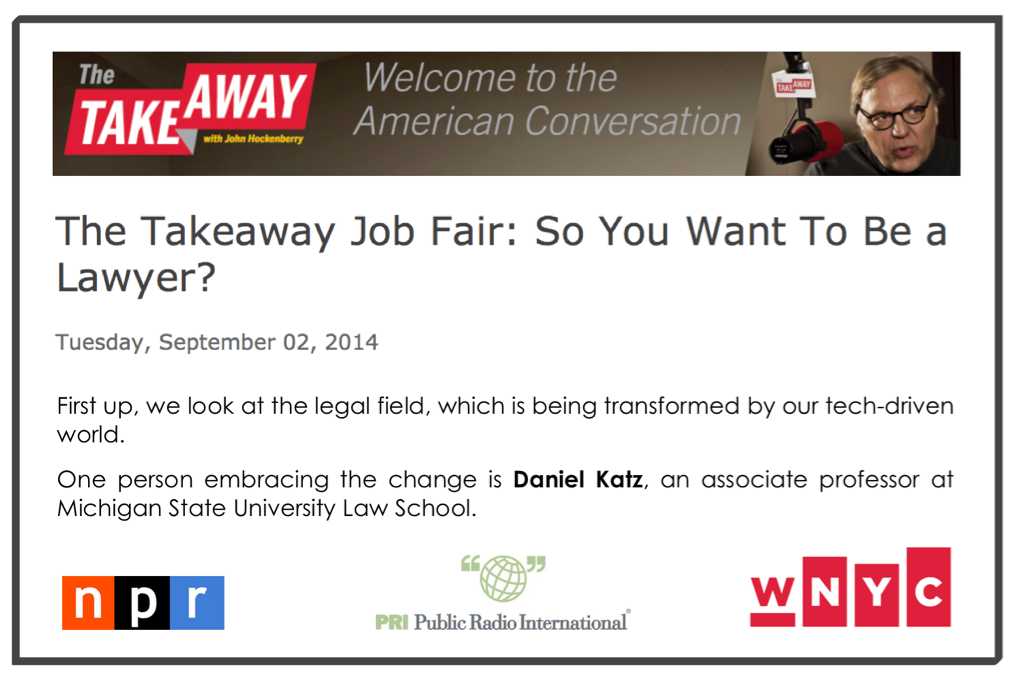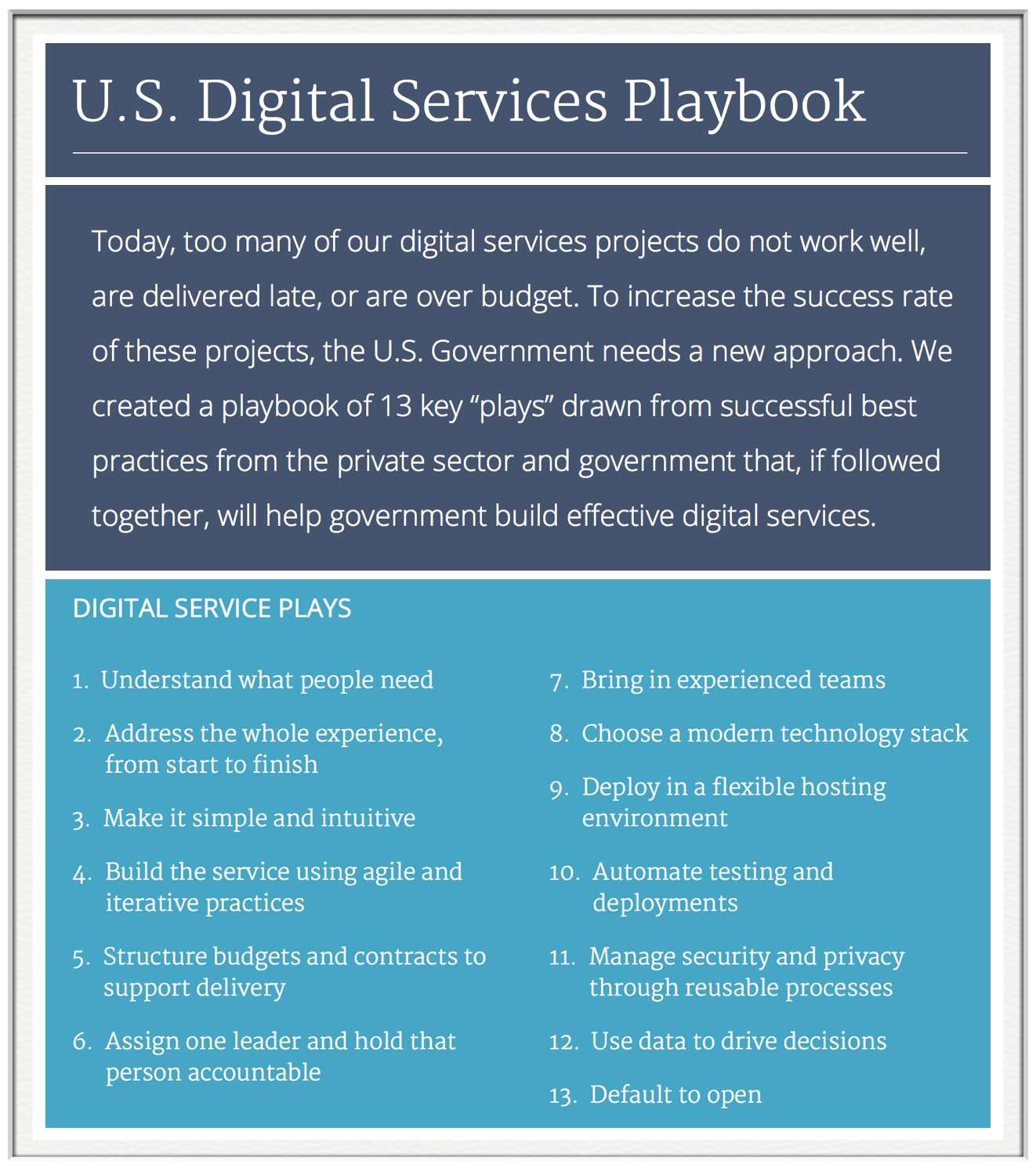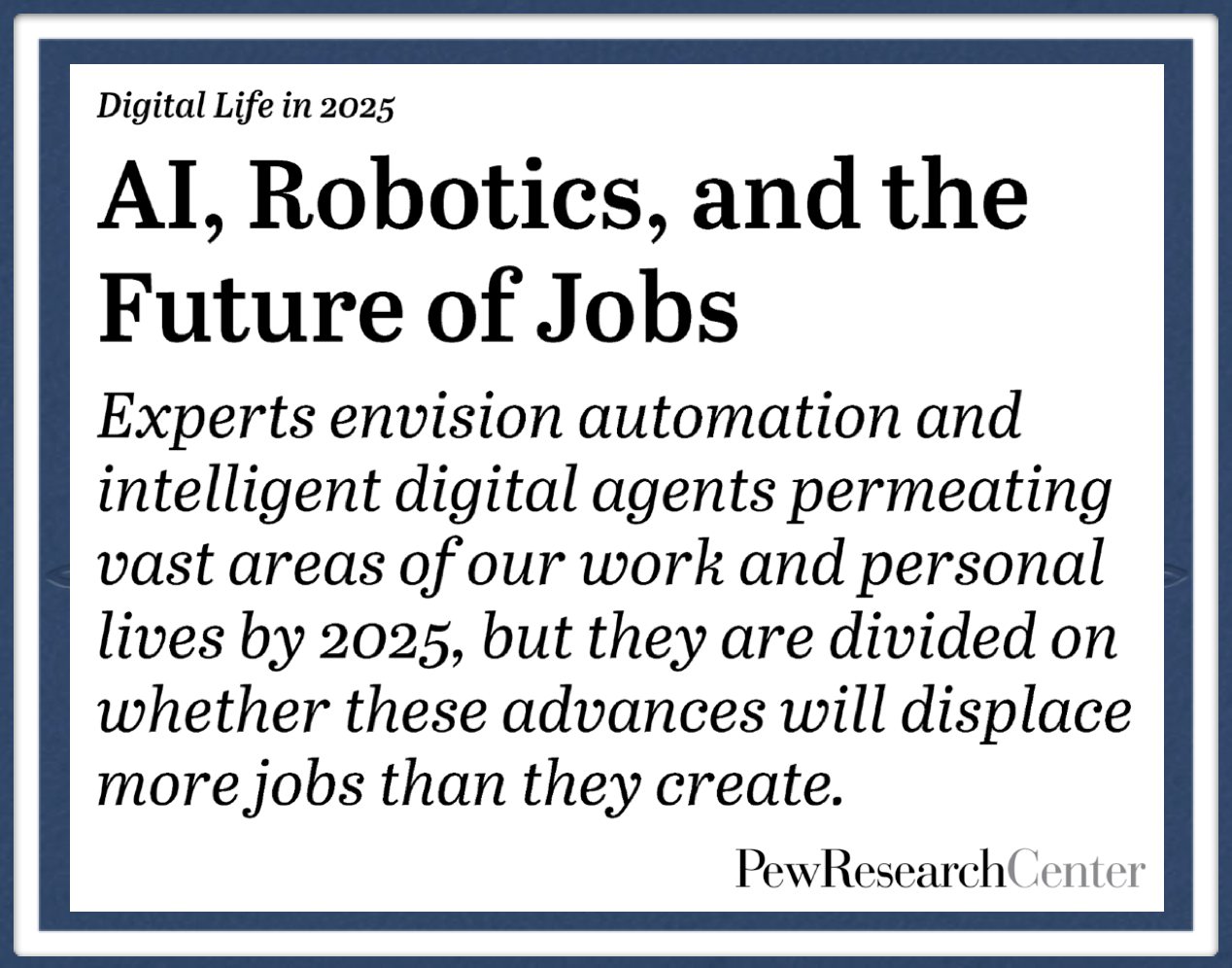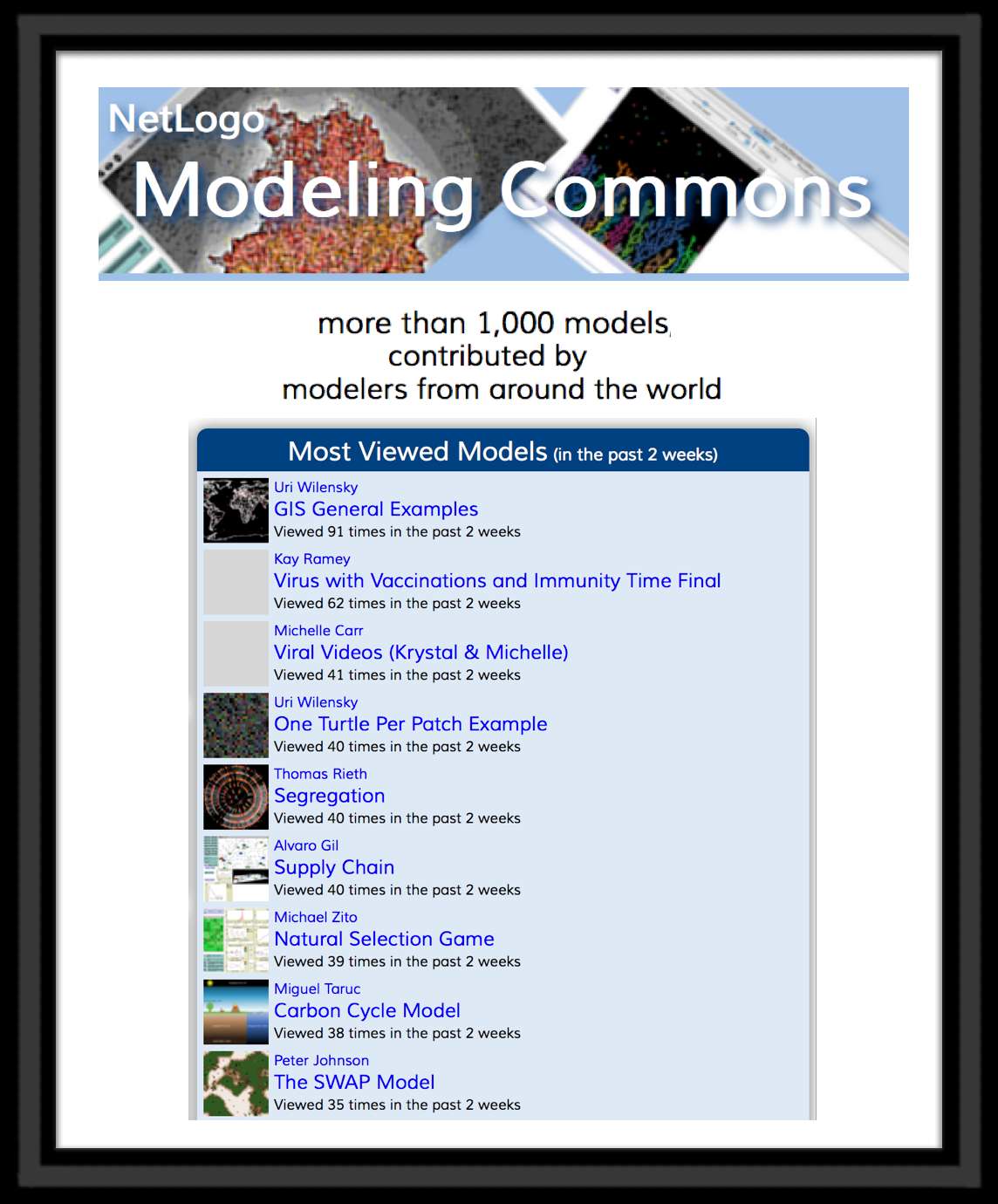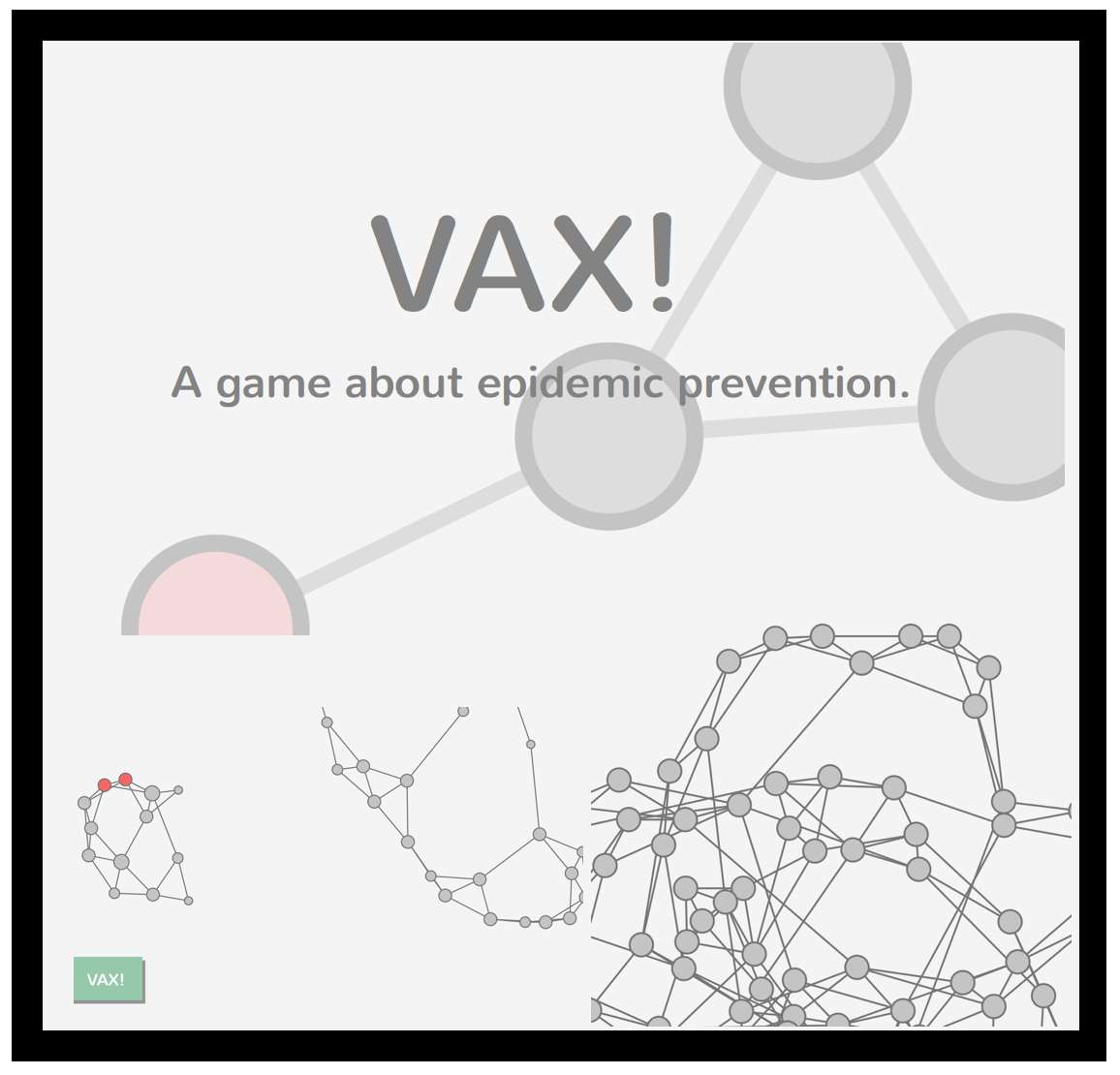Law 2050 – A Forum about the Legal Future (via JB Ruhl @ Vanderbilt Law)
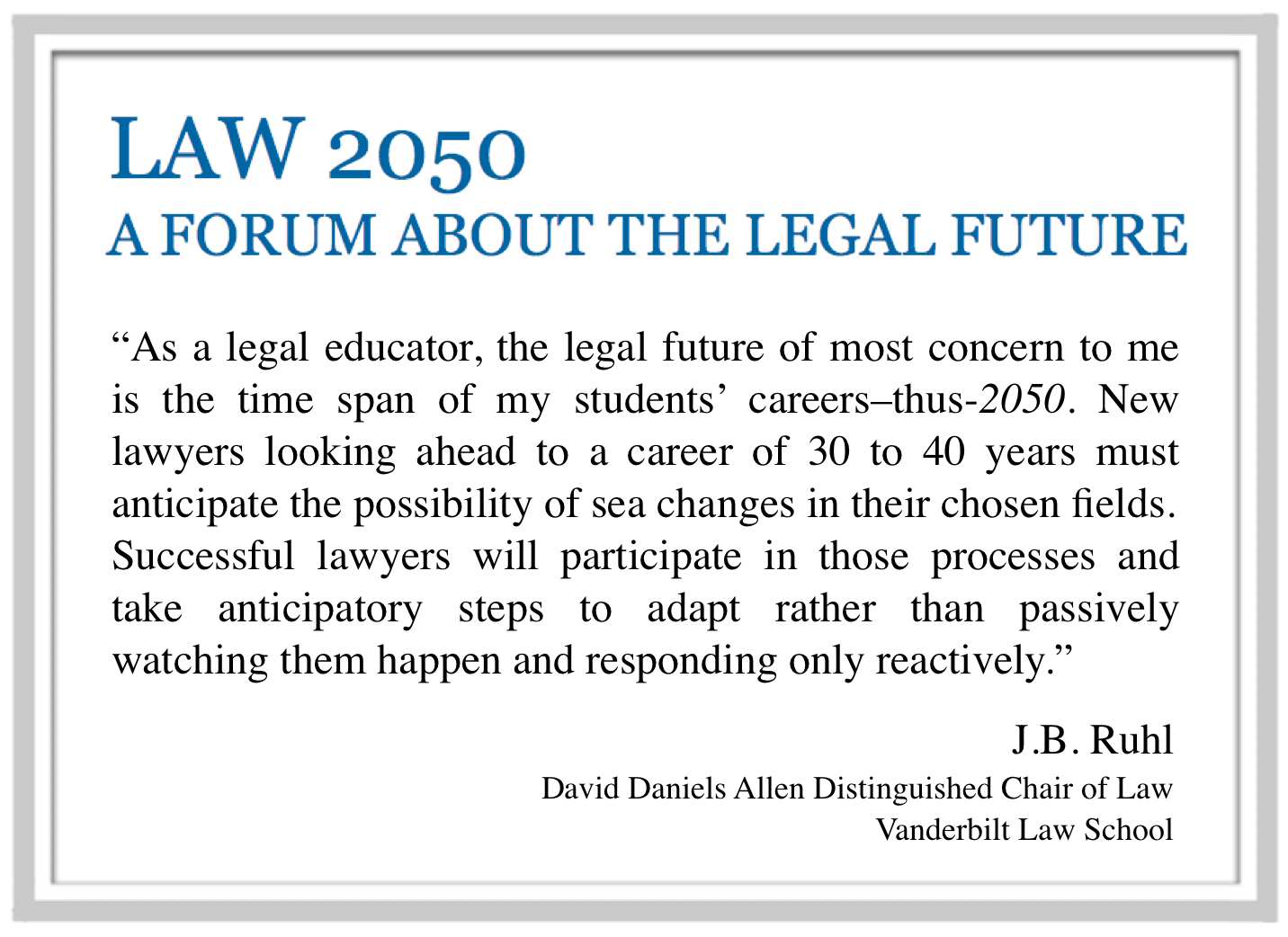 Law 2050 is a blog operated by J.B. Ruhl from Vanderbilt Law School in conjunction with his course on legal futurism offered to 2L + 3L students @ Vandy. There are two major classes of legal futurism and J.B.’s course does a nice of covering both.
Law 2050 is a blog operated by J.B. Ruhl from Vanderbilt Law School in conjunction with his course on legal futurism offered to 2L + 3L students @ Vandy. There are two major classes of legal futurism and J.B.’s course does a nice of covering both.
First, there are changes in the world that require lawyers, judges, lawmakers, etc. to develop new legal rules to take stock of shifting realities over time. Driverless cars and drones, 3-D printing, the internet of things, humans living until age 120, climate change, augmented reality and many other related innovations/developments will transform society. Law schools must produce agile and creative lawyers who can craft appropriate solutions to these developments (as they come online). Lawyers who are able to operate in such ever changing environments are the true value creators whose bespoke expertise will *never* be subjected to automation, etc.
Changes in way the lawyer work is the other class of changes for which we must prepare our students. Technology, design thinking, process engineering (lean six sigma, etc.), analytics, outsourcing, etc. have already changed and will continue to modify the legal production function. Law’s information revolution will continue to unfold and creep up the value chain. Organizing / managing / participating in this unfolding dynamic is also a form of bespoke activity. Unfortunately for many students at many schools, it has received very little (typically zero) curricular coverage (with MSU (and Vandy) excluded).
Students in J.B. Ruhl’s Law 2050 course are extremely lucky as they get the opportunity — while in law school — to consider how they fit into one or both of these forms of legal futurism.
Congrats to Hon. Ann Aiken and the other 2014 ABA Journal Legal Rebels
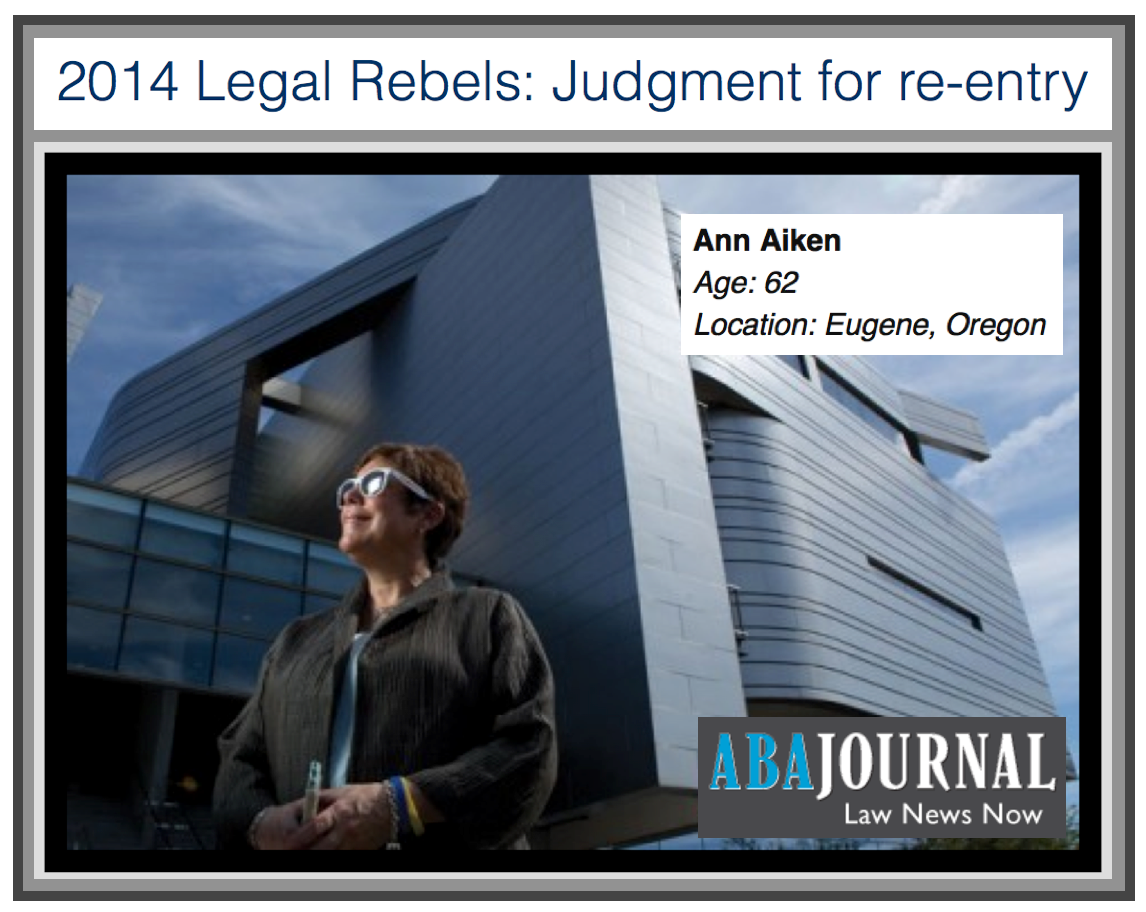 Congrats to my good friend – Judge Ann Aiken and the other 2014 Legal Rebels! See her talk from ReInventLaw Silicon Valley 2013 here.
Congrats to my good friend – Judge Ann Aiken and the other 2014 Legal Rebels! See her talk from ReInventLaw Silicon Valley 2013 here.
Author Mentoring Program @ 15th International Conference on Artificial Intelligence & Law (ICAIL 2015)
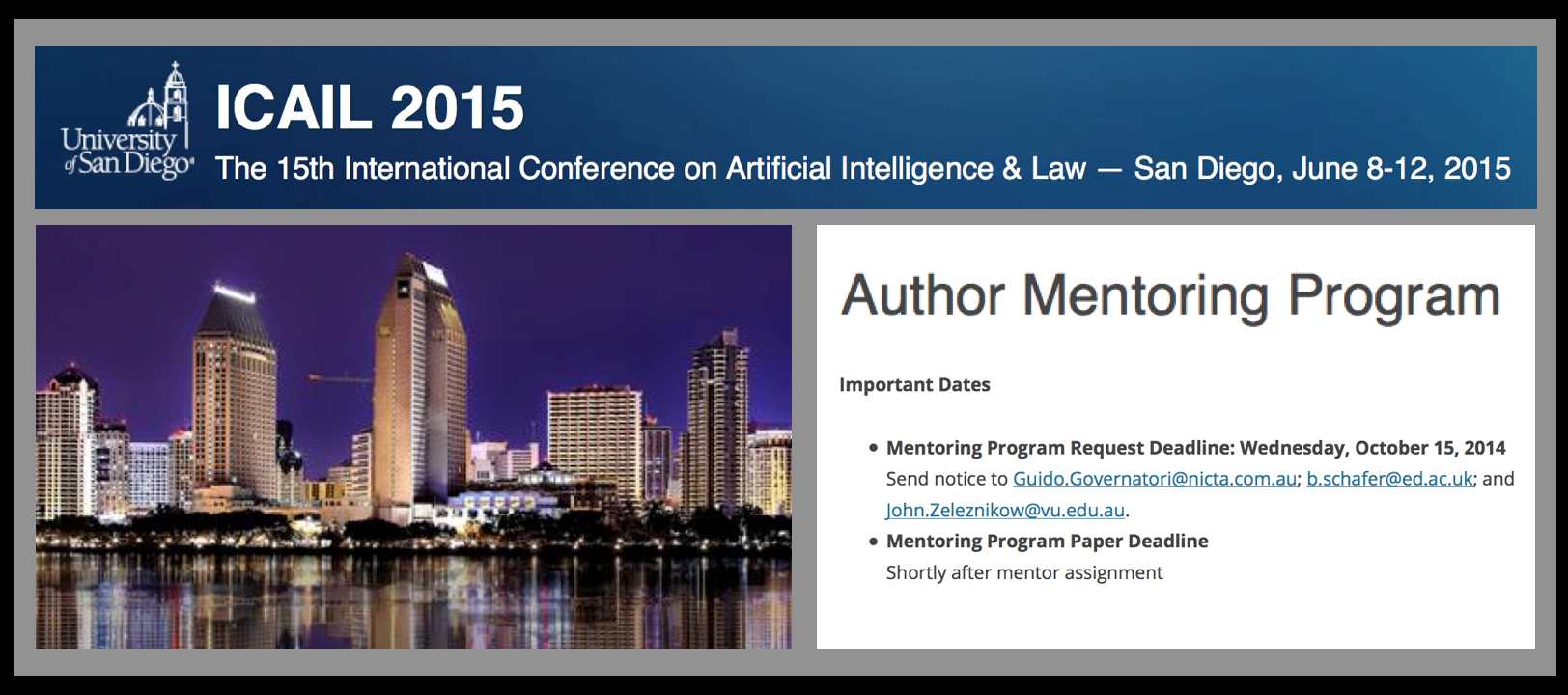 The International Association of Artificial Intelligence and Law (IAAIL) is offering a mentoring program for papers being submitted to its biennial ICAIL conference, the International Conference on Artificial Intelligence and Law. The program is intended primarily for junior authors who have not previously published an Artificial Intelligence and Law paper at a conference or in a journal. If you would like help with your submission, you may ask for a mentor ― a person who will help you with your submission to the IAAIL audience through one-on-one advising, usually via e-mail. A mentor can also familiarize you with the standards and deadlines of ICAIL submissions. Mentors are volunteers familiar with successful submissions. To request a mentor, please contact us by the Mentoring Program Request Deadline.
The International Association of Artificial Intelligence and Law (IAAIL) is offering a mentoring program for papers being submitted to its biennial ICAIL conference, the International Conference on Artificial Intelligence and Law. The program is intended primarily for junior authors who have not previously published an Artificial Intelligence and Law paper at a conference or in a journal. If you would like help with your submission, you may ask for a mentor ― a person who will help you with your submission to the IAAIL audience through one-on-one advising, usually via e-mail. A mentor can also familiarize you with the standards and deadlines of ICAIL submissions. Mentors are volunteers familiar with successful submissions. To request a mentor, please contact us by the Mentoring Program Request Deadline.
Humanity’s Cultural History Captured in 5-Minute Film (via Science)
More coverage is here. This builds upon ideas that were expressed at the High Throughput Humanities track at the 2010 European Complex Systems Conference.
This Computer Program Can Predict 7 out of 10 Supreme Court Decisions (via Vox.com)
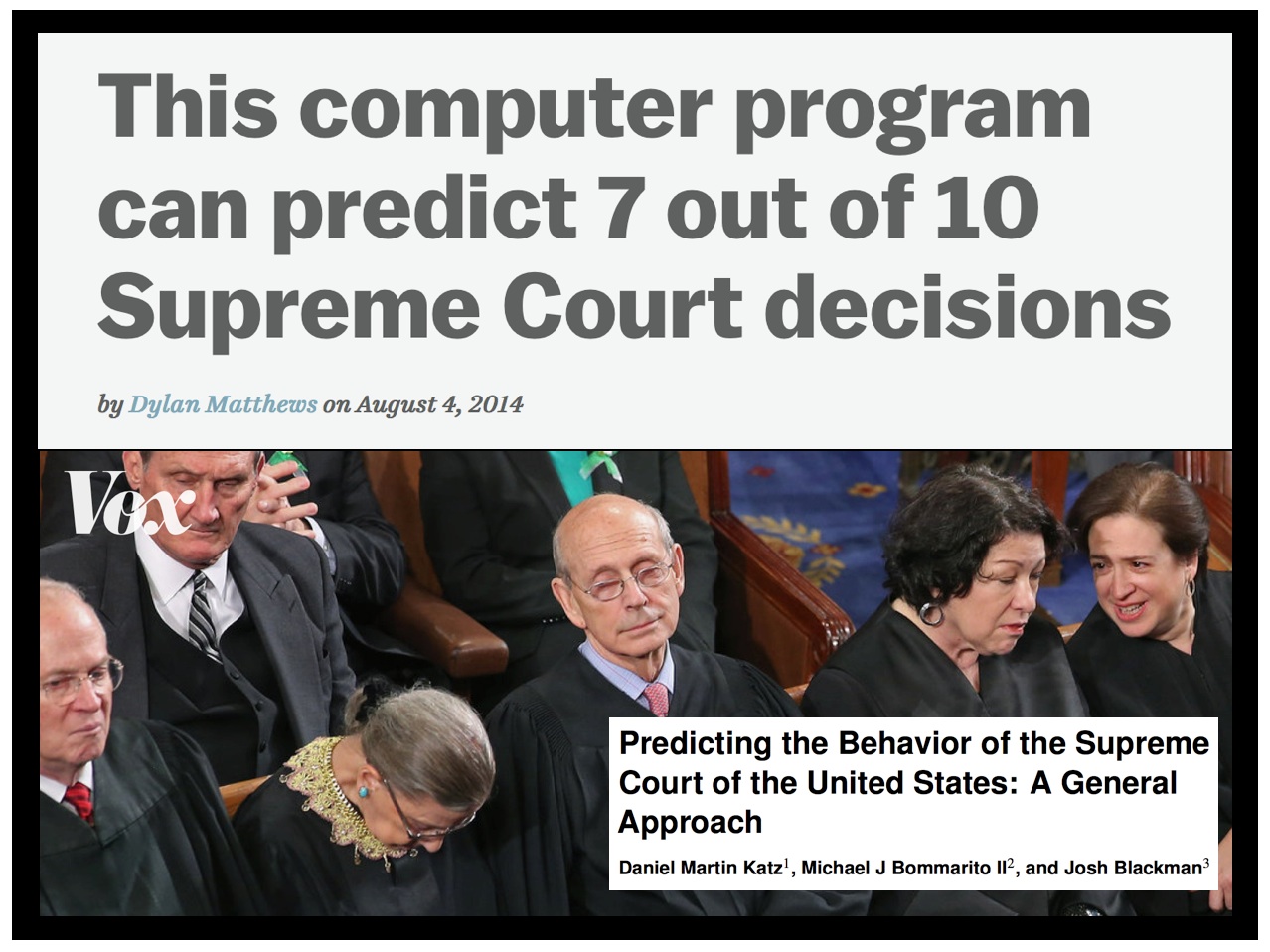 The story is here. Full form interview with Mike + Josh is here. (I unfortunately could not participate because I was teaching my ICPSR class). Our paper is available on SSRN and on the physics arXiv.
The story is here. Full form interview with Mike + Josh is here. (I unfortunately could not participate because I was teaching my ICPSR class). Our paper is available on SSRN and on the physics arXiv.

